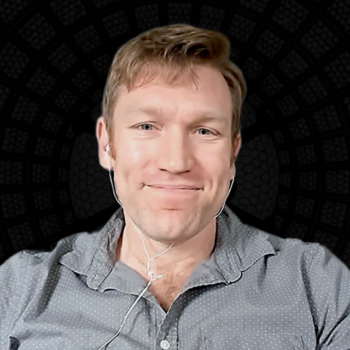The COVID-19 pandemic has had a profound impact on the world, affecting populations differently and raising numerous questions and concerns. In the video titled “Coronavirus Conversation, the State of the State,” experts delve into various aspects of the pandemic, offering insights and discussing key issues. This article provides a comprehensive summary of the video, covering the important points raised by the speakers. From the global impact of the virus to ethical concerns and the validity of COVID-19 cases, this article presents a detailed overview of the discussion.
Table of contents
Introduction
The video titled “Coronavirus Conversation, the State of the State” brings together experts to discuss various topics related to the COVID-19 pandemic. This article aims to summarize the key points discussed during the conversation, shedding light on important aspects of the pandemic response and its impact.
The Global Impact of Coronavirus
Dr. Randy Bock highlights the global impact of the coronavirus, emphasizing how the virus affects different populations in peculiar ways. Drawing a comparison, he mentions sciatica lumbar back pain and how its classification and quantification differ across regions. In sub-Saharan Africa, for instance, this condition is not widely recognized or complained about. Dr. Bach also touches upon how the no-fault collision law affected the insurance industry, leading to a surge in chiropractor and physical therapy practices.
Issues within the Insurance Industry
The conversation delves into the issues prevalent within the insurance industry. It is claimed that the industry has become tainted with opportunistic individuals seeking to make quick money. These individuals often exploit the system, seeking validation for injury claims from chiropractors, physical therapists, or doctors. The concept of secondary gain, where individuals anticipate rewards, further distorts the medical rewards system. The lack of COVID-19 cases in sub-Saharan Africa is also attributed to the low vaccination rate and limited testing in the region.
The Validity of COVID-19 Cases
Dr. Drew Pinsky raises questions about the validity of the reported rise in COVID-19 cases. He discusses the historical presence of coronaviruses in humans, pointing out that they have long been associated with the common cold virus. Dr. Pinsky refers to articles discussing the impact of lockdowns in China on workers and the ongoing mask-wearing debate in the most vaccinated country, Israel. Additionally, he highlights the emergence of new variants, such as the Omicron variant.
The Low Fatality Rate of COVID-19
This section focuses on the low fatality rate of COVID-19 and how the testing approach skews the perception of death rates. The speaker explains that testing primarily targets the elderly and sick, which may lead to an inflated perception of the virus’s severity. By comparing the outcomes in Israel, the most vaccinated country, with Sweden, it is highlighted that Sweden’s approach, despite no lockdowns, has resulted in a lower number of deaths. The section also emphasizes the intersection of public health decisions and politics, where cronyism can influence decision-making.
Coincidence of Public Health and Politics
The conversation touches upon the intersection of public health and politics, noting instances where cronyism leads to decisions influenced by financial interests. The discussion highlights the push for more lenient abortion laws and the testing of vaccines through human challenge trials for Zika. The ethical concerns surrounding the trial are raised, particularly the question of whether deliberately infecting individuals is justifiable, given the severity and disappearance of Zika.
Ethical Concerns: Human Challenge Trials for Zika
In this section, the speaker discusses the proposed human challenge trial for Zika in Brazil and the ethical concerns it raised. Despite Dr. Fauci’s ethics panel refusing to grant approval, the trial was eventually greenlit two years after Zika had disappeared. The decision was driven by a cost fallacy, prioritizing lucrative actions over cautious approaches. The section also highlights the influence of political pressure on public health decisions and its potential impact on emergencies and public fear. The speaker shares an anecdote about attending a politically-themed fundraiser and how vaccine mandates affect the theater industry.
Divergent Mask-Wearing Habits
The conversation highlights the significant differences in mask-wearing habits between towns situated in close proximity. The speaker describes an event in a blue-collar town where mask-wearing was negligible, reminiscent of pre-pandemic times. In contrast, young people in gyms and dance classes continued to wear masks. The speaker emphasizes that much of this behavior is not solely rooted in scientific evidence and suggests that it will change as people become more aware.
Conclusion
In conclusion, the video “Coronavirus Conversation, the State of the State” covers a wide range of topics related to the COVID-19 pandemic. From the global impact of the virus to issues within the insurance industry, the discussion raises thought-provoking points that prompt a critical examination of public health decisions. It highlights the ethical concerns surrounding human challenge trials and the intersection of public health and politics. The conversation concludes with a call to action, promoting the speakers’ book on Amazon and welcoming audience feedback to improve future shows.
FAQs
The video explores various topics related to the COVID-19 pandemic, including its global impact, issues within the insurance industry, the validity of COVID-19 cases, the low fatality rate, ethical concerns, and divergent mask-wearing habits.
The speakers include Dr. Randy Bock and Dr. Drew Pinsky, among others.
The video raises ethical concerns regarding human challenge trials for Zika and the influence of politics on public health decisions.
The video concludes with a call to action, promoting the speakers’ book on Amazon and inviting audience feedback to enhance future shows.
The discussion highlights the discrepancies in mask-wearing behavior between towns, suggesting that these behaviors are influenced by factors beyond scientific evidence and may evolve over time.
In summary, the video “Coronavirus Conversation, the State of the State” provides valuable insights into various aspects of the COVID-19 pandemic. By addressing crucial topics and raising thought-provoking questions, it encourages a critical evaluation of public health decisions and their broader implications.
Related Articles:
Discover more from Randy Bock MD PC
Subscribe to get the latest posts sent to your email.
























